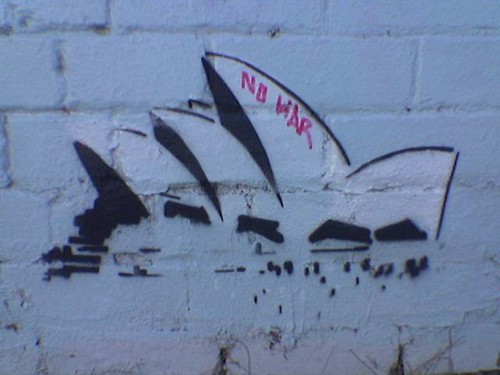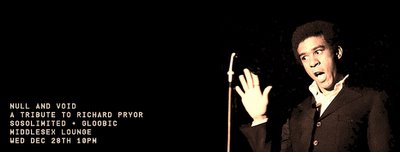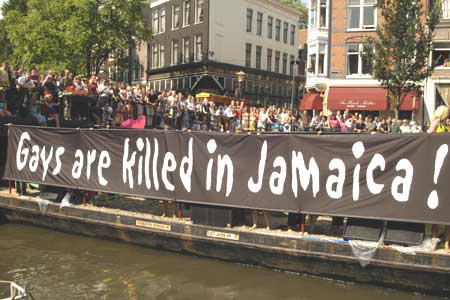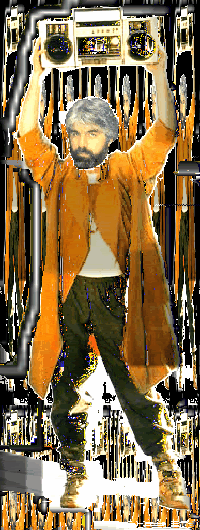downunder underground
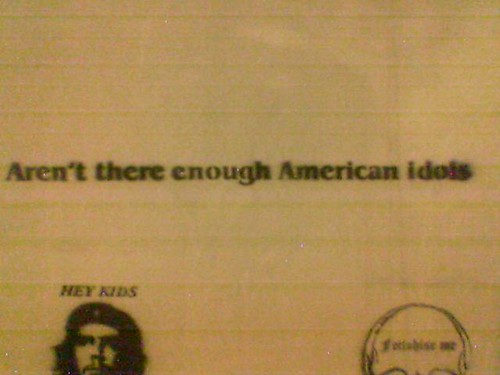
the outbreak of "race riots" in sydney should have come as anything but a surprising development, especially for expatriate lebanese-australians or, say, anyone who paid attention to the recent insurrection in paris. indeed, given the similarities between that flare-up and the still smoldering cities of france, i'm surprised that no one has yet fingered hip-hop.
seriously though, how do we reconcile sydney's seemingly serious social rifts with what appears to be, if perhaps a more marginal subculture than the "surf movement," a downright vibrant hip-hop scene? maybe it's elementary: hip-hop's embrace on the part of certain australians makes plenty of sense against the backdrop of a pervasively, and sometimes explicitly, racist society. and though i wouldn't want to generalize too strongly about who constitutes the "hip-hop community" in australia (as if any such monolith ever exists), i think that the recent riots do call our attention to one partial answer to bakari kitwana's underlying, provocative question, why do white kids love hip-hop? because other white kids don't.
now, though that might seem a naive recuperation of what otherwise might be understood as fascination, fetishization, and appropriation, i think that we would do well not to forget the fundamentally anti-racist gesture implicit in anyone's serious engagement with the forms of hip-hop. even on the quotidian level of challenging the sartorial--or sonic--norms of an otherwise invisible whiteness, by embracing hip-hop white-kids-who-love-hip-hop can often productively animate public discussions and cultural politics around race. in many cases, too, the anti-racist gesture becomes more than that: it becomes a position, a practice, an ontology. of course, the same gestures can also be less than that, ending up rather empty when they fail to translate into any sort of meaningful action or movement toward change or when they fall into the familiar pits of romanticization and, once again, a reification of racial categories. or as ian maxwell puts it:
There is, indeed, a sense in which African-American blackness figures (and, it has to be acknowledged, is promoted, and promotes itself) to these Australian teenagers as an exotic, somewhat sexualized other. (x)maxwell reminds us of the obvious in order to explain how hip-hop itself figures in australia's sense of itself as "cut through with ambivalences and anxieties about place and identity" (ibid.)--which is something of an abstract way of saying that australia is divided (and who's on what side again?) when it comes to making sense of a history of racist oppression, appropriation, and exploitation.
interestingly (for me anyway), australia is like many hip-hop scenes outside of the US in that its idea of hip-hop style often contains a heavy dose of reggae. one remarkable facet of this conflation between the two (which otherwise suggests interesting things about the ways that hip-hop and reggae travel outside of the US/caribbean) is the way that such styles themselves figure in artists' and audiences' negotiations of race and nation in such "glocal" contexts. (and though glocal is a terrible word and should be left to die in the obscurity of discarded neologisms, it does describe somewhat well the convergence of globally-circulating ideologies/forms and local contexts of reception and practice.) maxwell, for instance, discusses an artist who claims that his raggamuffin flow was "influenced by London ragga rap rather than North American rap, conceding the Afro-Caribbean 'roots' of that scene, but carefully distancing himself from charges of imitation or of subjection to a putative American cultural imperialism" (203). so we see how such overlapping (if not conflicting) identifications can become quite a tangle--binding and cutting even as they connect.
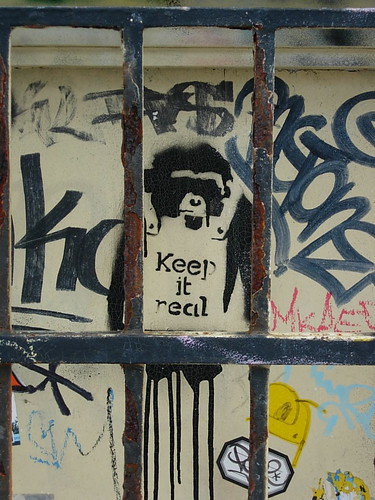
all of this is something of a preamble, though. a few weeks ago i got a buncha CDs from the sydney-based elefant traks stable. although i tried to approach the recordings with open ears, without fail the tracks would turn my thoughts to the state of australian hip-hop--and in particular how this batch of new recordings, though admittedly from one camp, reflects on the scene (and society) more generally, where it's been, and where it's going.
when i think of australian hip-hop in the abstract i think of a certain playfulness that comes with the distance of being on the other side of the world. for instance, one hears a generally ecumenical approach to sample sources (as exemplified by the avalanches, the turtablist collective who earned themselves no small distinction among the crowded field of well-endtroduced cut-chemists)--though one could see such an openness as simply consistent with an underground or "true school" ethos, which seems to mark much hip-hop outside the US. at the same time, though, austalian hip-hop also seems to be saddled by a degree of mimesis that suggests a struggle to find its own voice. this especially emerges in the rapping, where, perhaps in attempts to sound absolutely nothing at all like some crocodile dundees, too many MCs still resemble aussie stand-ins for stateside favorites. (if you like aesop rock, you'll love aussop rock!)
with regard to some recent releases from the elefant crew (who show no small promise as a professional, dedicated, and talented bunch), what stand out most for me are, perhaps unsurprisingly, the instrumentals, the beats-for-heads numbers. these aren't remarkable in their distinctiveness as an index of locality (i.e., their australianness), per se, but they certainly succeed on the same scale as their american and european counterparts. (which may or may not be the scale on which they should be weighed--i suppose i prefer several scales. it's a question of contexts and such.) don't get me wrong, ya herd? this is some well-crafted hip-hop--reverent, but not without a sense of play; inventive, if a bit conservative. it won't make the kiddies dance like fiddy does, i don't think, but it gives you plenty to listen to, especially, i imagine, if you're an australian youth looking to brandish a backpack like a badge of courage.
or, perhaps, a trenchant t-shirt?

at any rate, my favorite disc of the bunch is, without a doubt, pasobionic's empty beats for lonely rappers.
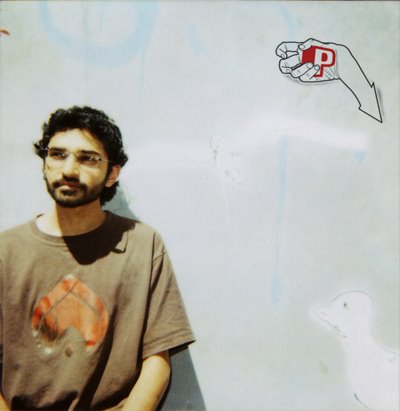
at times rather reminiscent of flack's blue beats mix, empty beats supplies the lonely rapper with no end of choice, chill, head-nodding beats. perfect for the living room or the lounge. (the kitchen, too.) fine for freestylin' or just plain stylin'.
pasobionic, "empty beat 2"
in a similar vein, unkle ho's roads to roma grabs odd sample sources from across the map and across various eras: klezmer, tango, mariachi, dixieland, mid90s dancehall, hawaiian slack-key, blues rock, you-name-it. at times, though, the parade of nations gets a bit tired. there's something a little too cartoonish in this soundgrab: such representations of ethnicity, although explicitly deconstructive in their kitchy connotations, can still serve to reify rather than subvert stereotypes.
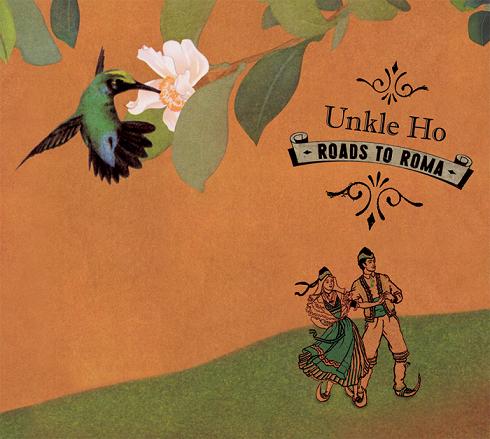
but then, who am i to say what's a "proper" tactic of (anti-anti-?)orientalism? i think unkle ho certainly deserves a say. his mix of eastern signifiers and swing-era jazz on the following track perhaps presents a more complex picture of an imaginary australian soundscape than my cautionary reaction might imply. i'll leave it to you.
unkle ho, "grace of the guru"
if nothing else, the burgeoning hip-hop scene down under offers something of an alternative vision of australian society. with its vital and playful creativity, its outernational orientation, its (inherited) alignment with the rights of the oppressed, and its essential opposition to status quo racism, australian hip-hop can serve as the sort of grassroots social movement that its practitioners, as with so many practitioners of hip-hop worldwide, dream it to be. if it is to do so, though, aussie artists would do well to express to their fellow australians (and to the wider world) what it is they've learned from hip-hop and thus learned about themselves and their mates and their society. don't tell us what we've/you've already heard from def jux and such. tell us what you've heard on the beach, on the streets, in your head. tell us something we don't know. tell us something we don't see when we finally see y'all on TV. let us hear what the voices of the new new south wales really sound like. i have a feeling we'll like what we hear.
